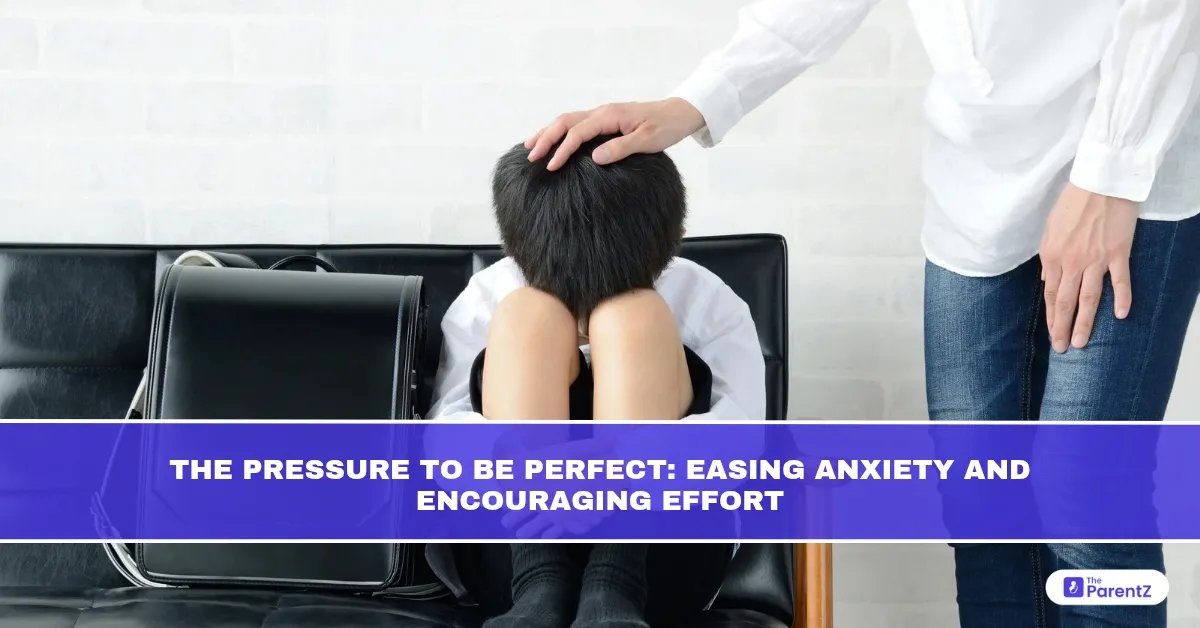It often begins quietly. A child meticulously erases and rewrites their homework. They break down in tears over a B+. They hesitate to try something new for fear of “not doing it right.” As a parent, caregiver, or teacher, you watch a once curious child grow anxious under the invisible weight of perfectionism.
In today’s world, where success is often praised more than effort and achievement is closely tied to self-worth, children are absorbing a powerful message: that being perfect matters more than being real, trying hard, or enjoying the journey.
What Is Perfectionism?
Perfectionism isn’t simply wanting to do your best. Healthy striving can be motivating. But perfectionism is when a child’s self-worth becomes tangled up in their performance, and mistakes feel like personal failures.
Signs of unhealthy perfectionism in kids include:
- Fear of making mistakes or looking “bad”
- Procrastination (because starting feels too overwhelming)
- Avoiding new or challenging tasks
- Becoming upset or ashamed over small errors
- Seeking constant reassurance
- Extreme sensitivity to criticism
These patterns can lead to anxiety, self-doubt, and burnout, especially when combined with academic pressure, social media comparisons, or overly high expectations.
Where Does the Pressure Come From?
Perfectionism can be shaped by a mix of internal traits and external influences:
Praise focused only on outcomes (like grades or trophies)
Comparison culture, especially on social media
Fear of failure and disappointing others
High parental or school expectations
Natural temperament, some children are more sensitive and achievement-oriented
Even well-meaning encouragement like “You’re so smart!” or “You always get things right!” can unintentionally create a fear of slipping up.
Why It Matters: The Emotional Cost of Perfection
Over time, the pressure to be perfect can wear on a child’s emotional well-being. Research shows a link between perfectionism and:
Anxiety disorders
Depression
Eating disorders
Low self-esteem
Avoidance of effort (to “protect” self-worth)
When children believe love and acceptance are conditional based on performance, they learn to hide their struggles instead of facing them.
But here’s the good news: Perfectionism is not a fixed trait. It can be gently reshaped into healthier patterns, especially when children feel seen, supported, and safe to be imperfect.
How to Help: Shifting from Pressure to Progress
1. Normalise Mistakes as Part of Learning
Start by showing your child that making mistakes is human and helpful. Share stories of times you struggled, failed, or learned through trial and error.
You might say:
“Oops! I burned dinner tonight. Guess I need to set a timer next time.”
“I remember failing a test in school once, but it helped me figure out how I study best.”
“We don’t have to get it right the first time. That’s how we grow!”
Reinforce that mistakes aren’t something to fear; they’re part of learning and life.
2. Praise Effort, Not Outcome
Instead of focusing only on the result, highlight the process:
- “You worked really hard on that project. I saw how focused you were.”
- “You were brave to try that even though it was new.”
- “What part of this did you enjoy doing most?”
This helps your child value their perseverance and curiosity over perfection.
3. Teach Flexible Thinking
Perfectionists often think in all-or-nothing terms: “If it’s not perfect, it’s terrible.”
Help your child reframe:
“Even if you made a mistake, you still did so many things right.”
“This didn’t go the way you wanted, but what can we learn for next time?”
“Just because it’s hard now doesn’t mean it will always be.”
Support them in recognizing gray areas and progress, not just extremes.
4. Model Self-Compassion
Children mirror our self-talk. If we beat ourselves up over small things, they learn to do the same.
Try modelling self-kindness:
“I’m disappointed I missed that deadline, but I’m trying not to be too hard on myself.”
“I’m proud of the effort I put in, even if it didn’t turn out perfectly.”
Your words become their inner voice.
5. Create a Safe Space to Be Imperfect
Celebrate creativity, play, and trying new things without tying them to achievement. Let your child see you doing things just for fun, not just to be good at them.
Encourage messy art, silly writing, or learning a new skill together. The goal isn’t perfection; it’s to explore.
6. Watch for Signs of Anxiety
If your child’s perfectionism is causing significant distress, don’t hesitate to seek help. Signs that extra support may be needed include:
- Trouble sleeping or eating
- Persistent worry or panic
- Meltdowns over small issues
- Withdrawal or avoidance of school/work
- Harsh self-criticism or hopelessness
A child therapist can help develop healthy coping tools and reduce perfectionist tendencies in a supportive way.
Final Thoughts: Progress Over Perfection
Perfectionism may whisper to children, “You’re only enough when you get it right.” But as adults who care, we can help rewrite that script.
We can teach children that their worth is not earned, it’s already there. That trying matters more than getting it perfect. That effort, kindness, curiosity, and resilience are the real measures of success.
So, the next time your child is hard on themselves for coloring outside the lines, getting a math problem wrong, or not winning a race, take a deep breath and remind them:
“You are more than your outcomes. And I love you for who you are, not what you do.”





Be the first one to comment on this story.